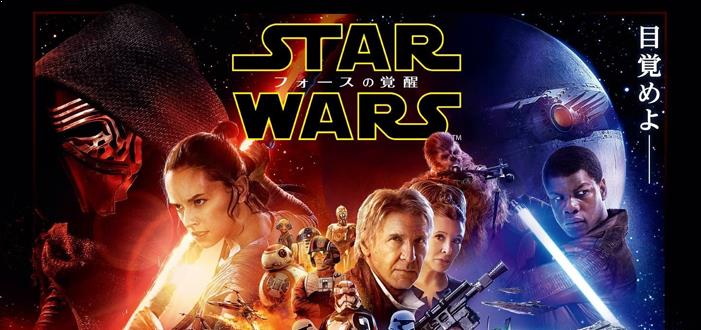
Star Wars: The Force Awakens
It was obligatory to see the latest Star Wars and in fact it may be said it is disappointingly so. That the culture coerces one to participate in what amounts to nothing but a fantastical reminiscence of the prime movement of the original, which was the exhilarating spark of intriguing the imagination of a world that has never been but feels so infinitely rich and depth that one can – and many have – dedicated their lives to exploring its possibilities. Gratefully, at the very least, this film did not bastardize or molest the innocent wonder that is apparently still fixed within the magic of the original. But then it is quite impossible for it to have ever wrecked its capacitance like the prequel trilogies, as this aspires to be nothing more than a memorial of the first.
Astonishingly, by playing on the defense, J.J. Abrams refused to bring about an innovative story line. It is almost comically absurd how replicated and synthetic this story line is compared to the original. Absurd because in this present universe, the climactic ending of the series appears to have not been in the minds of any of the characters. Disregard the implausibility of such meteoric galactic imperialism spontaneously emerging at will, with their introduction of another megadeath weapon – as if in the history of this galaxy, only in this briefest of windows in time, there has been three attempts at dominating and enslaving the galaxy, and as if it is trivial to secure lines of credit for the manufacturing of such imperial armies; maybe there is a Keynesian galactic reserve bank or a cabal of the Mel Gibson indicted money lenders of a particular galactic religion that is the root of all these wars – it is simply the case that we have seen this story before. Only now, as others have derided, we have a girl-power protagonist who can deploy jedi mind control at a level that requires, previously logically in the storyline, years if not decades of ascetic discipline and sacrifice to the role of the Jedi in the order of the universe, and the ability to use its most sacred icon, the light saber, as if this was a children’s arcade game. Astonishingly, then, even with the original narrative being birthed by an Olympian of limousine liberals George Lucas, we have the presence of the ideals of what is required to master anything in life, appreciated by the litany of cultures that have ever emerged on Earth; and that is sacrificing the self to a higher order; disregarded because it is more fun to play with the force than to appreciate it as signifying a higher, more spiritual plane, of existence. The narrative falls apart henceforth; when there is no point to sacrificing oneself, we immediately ask what point is there to live for a republic? Why do the characters live the way they do? The sudden conscientious observance of the storm trooper has no explanation; it appears as if he seemingly randomly mutated amidst the presence of the horror of war. His contrived allegiance to anything else, in this context, is simply that: contrived.
It is not, therefore, mutually exclusive for there to be commercial art and meaningful art, which the original represented wonderfully. The original spectacularly fulfilled the aim of art, thunderously expanding the imagination of the human while anchoring it to the quintessential feature of a rational animal, that being consequentially his morality. We have here, then, good versus evil, with no point nor meaning to the contest. It is simply a derivative of a higher work which many millions of people clamor to resuscitate, but have no guiding angel to show them the light that they once saw.

